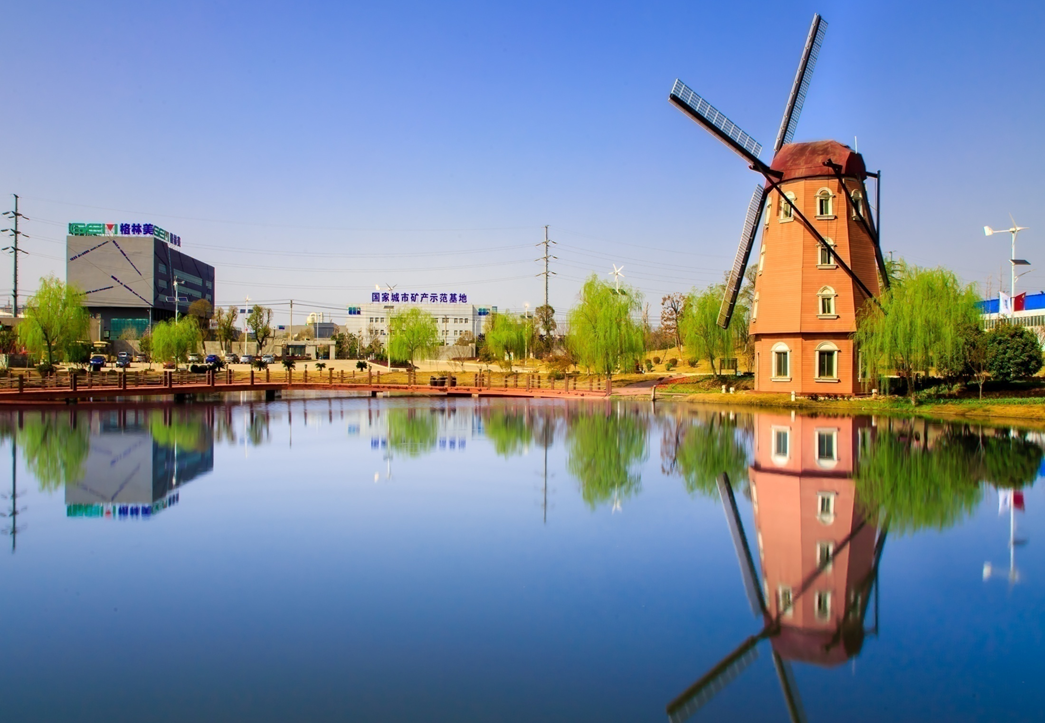
Figure 1 A GEM industrial park (Jingmen, Hubei, China)
GEM (stock code: 002340), a company listed on the Shenzhen Stock Exchange, announced that on June 22, 2022, that the China Securities Regulatory Commission (CSRC) gave its approval for the company to issue global depository receipts (GDR) and to be listed on the Swiss Exchange (SIX). On July 20, 2022, SIX approved GEM to issue GDR and to be listed on the SIX. So far, the path of GEM issuing GDR and going public on the SIX have been unimpeded.
It is an achievement of capital opening-related cooperation between China and Switzerland, and also an achievement for promoting capital cooperation between the Shenzhen Stock Exchange and the Swiss stock exchange. It sets the precedent for Chinese enterprises to issue global Depositary Receipts (GDRs) for listing on the Swiss stock exchange. This undoubtedly opened a green channel for Chinese enterprises to enter European capital markets.
According to GEM’s public release, its application to issue GDR and to be listed on the SIX was accepted by the CSRC on May 24, 2022 and approved on June 22, 2022. It took no more than 30 calendar days, which demonstrates the efficiency of the Chinese government and their support for Chinese enterprises to issue GDR and to be listed on the SIX.
Similarly, the application submitted by GEM to SIX on May 27 to issue GDR and to be listed on the SIX was accepted on July 20, highlighting the efficiency of cooperation between the exchanges of the two countries, the Shenzhen Stock Exchange and the Swiss Stock Exchange.
Landing on the Swiss stock exchange, investing in overseas green projects, and serving the European new energy industry
As early as April 30, 2022, GEM announced that the company plan to issue GDR and to be listed on the SIX, which would be used to support their European power battery recycling and power battery material manufacturing projects, the development and operation of overseas nickel resource projects, to promote the company’s international expansion, strengthen international financing channels, and further enhance its global brand influence.
In May 2022, GEM and the Hungarian Consulate General in Shanghai, through friendly discussions, signed an “MOU for Cooperation on Production of High-nickel Precursors for New Energy Vehicles and Recycling of Scrap Power Batteries.” This MOU concerns investment in the production of high-nickel precursors for new energy vehicles and the recycling of end-of-life power batteries, based on the principles of cooperation, mutual trust and ESG value investment. GEM plans to build a Europe-leading, world-standard new energy circular economy industrial base in Hungary which meets the requirements of the EU's new energy industry development for the localization of material manufacturing, and to meet the implementation requirements of the EU’s new battery laws. With this cooperation, GEM will build a full life-cycle value chain: “power battery recycling - material remanufacturing - cascade reuse of power battery" in Europe to meet the requirements of downstream customers for the localized supply of ternary precursor materials.
An important investment project for the global depository receipt (GDR) issued by GEM and listed on the Swiss Stock Exchange is GEM’s Indonesia Nickel Resources Project. According to the early public release, GEM established a joint venture entitled “PT.QMB NEW ENERGY MATERIALS” in Indonesia with CATL, the world-leading power battery company, and Tsingshan Holding Group Co., Ltd., the world's largest stainless-steel manufacturer. This joint venture will exploit nickel resources and produce nickel raw materials to generate new energy. The project is designed to produce 50,000 metal tonnes of nickel intermediaries and 4,000 metal tonnes of cobalt per year from laterite nickel ore, meeting the nickel resource demand of ternary power battery manufacturing. The project adopts green design technology by using low-grade laterite nickel ore (containing 0.8-1.2% nickel) and high-pressure leaching technology (HPAL), which are not currently used in pyrometallurgy. This technique achieves the new energy industry ideal of "putting laterite nickel ore in, refining new energy materials, and making batteries", reflecting the concepts of resource conservation and environmental protection. The first phase of the project (with a capacity of 30,000 tons of nickel metal) has been completed. The project is a groundbreaking move in Indonesian history, converting nickel resources into new energy materials. This work is highly valued by the Indonesian government and has become a representative project for global nickel resource capacities.
In the past two years, since nickel has become the key element of ternary power batteries for new energy vehicles, and with the rapid development of global new energy resources and the great market potential for the future, nickel has become a scarce resource worldwide. In March of this year, the price of nickel on the London Metals Exchange exceeded $100,000/ton, setting a new record for the price of nickel resources. Nickel was dubbed "demon nickel" for the sudden surge. According to Frost & Sullivan's latest Report, by 2030, the global new energy industry will increase usage of nickel resources by 3 million tonnes, almost more than twice the current total exploitation of global nickel resources. This will result in a shortage of global nickel resources over the next 10 years and keep nickel prices high.
Therefore, the Indonesian nickel resources project led by GEM is strategically forward-looking and will produce solid economic benefits. According to its public release, the project is expected to add RMB 5.36 billion yuan of sales and 1.06 billion yuan of profit every year once it is completed.
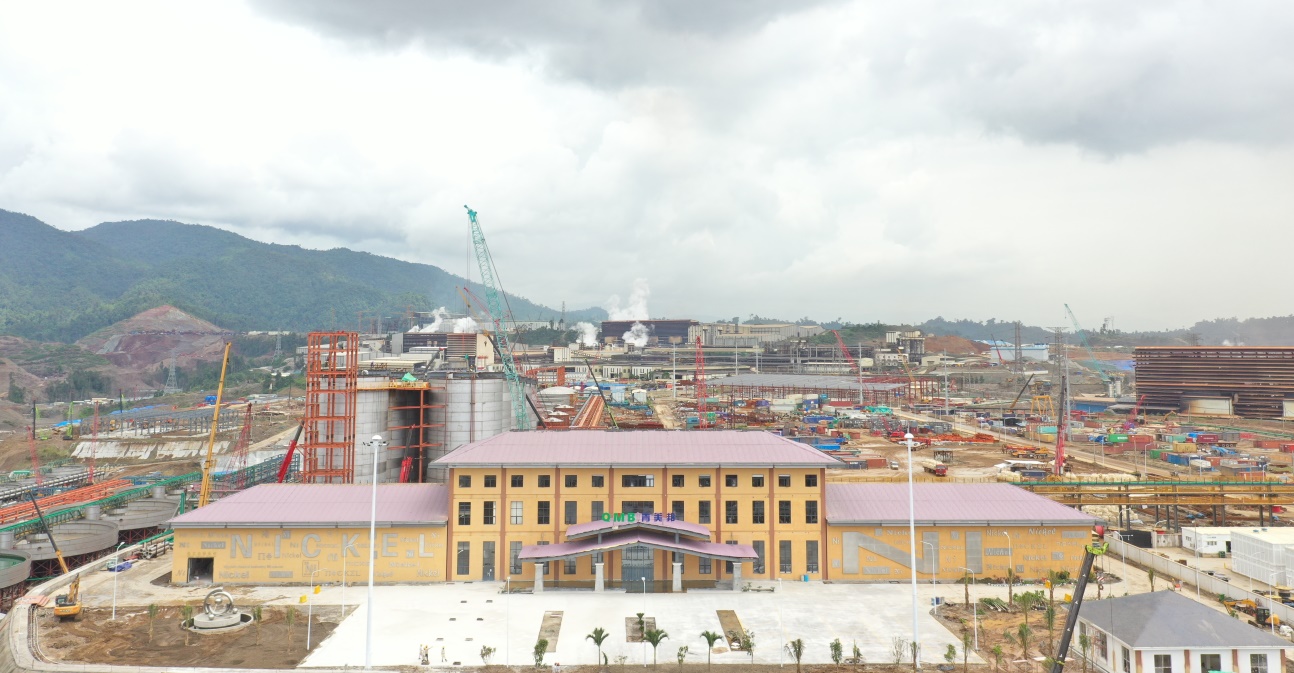
Figure 2 Construction site of GEM’s Indonesia project
Landing on the Swiss stock exchange to connect Chinese enterprise with the green circular economy chain in Europe
Europe is the birthplace of circular economy legislation and industry. The first waste regulation was issued as early as 1975, and and EU member country, Germany, formulated the widely influential Circular Economy and Waste Treatment Law in 1994. In 2015, the first European Circular Economy Action Plan was released to stimulate the transition from a linear economy to a circular economy in Europe, while creating new jobs and ways to promote sustainable growth. In December 2019, the European Union issued the European Green Agreement to build a competitive modern economic system decoupling economic growth and resource consumption. At the same time, the European Green Deal was issued, vowing to lead the EU to achieve carbon neutrality by 2050, and "no one can be less". In March 2020, the European Union issued a new Circular Economy Action Plan, with the goal of "formulating a future-oriented agenda to make Europe cleaner and more competitive".
On the basis of policy guidance, the EU has also provided generous development funds for the development of circular economy, providing more than 10 billion euros of public funds between 2016 and 2020. Circular economy innovation funding stems from several EU projects, including Horizon 2020 and the Cohesion Policy. The implementation of a series of policies and regulations and the activation of the circular economy development fund have enabled Europe to achieve fruitful results on the road to reshape the economy and achieve a "carbon-neutral" circular economy, taking the lead for the world.
In July 2018, the EU and China signed the Memorandum of Understanding on Circular Economy Cooperation and decided to establish a high-level dialogue on circular economy. China and the EU agreed to take the transition to a circular economy as the focus of strengthened cooperation, and take China-EU circular economy cooperation to a new level.
In February 2022, the China Securities Regulatory Commission issued the revised "Regulations on the Supervision of the Interconnected Depository Receipt Business of Domestic and Overseas Stock Exchanges", which expanded the scope of overseas application to major European markets such as Switzerland and Germany/ It encouraged enterprises to expand two-way financing channels through the overseas issuance of GDR to serve their international business development needs.
Under this historical opportunity for policy and capital reaching new heights for China-EU circular economy cooperation, GEM, as an outstanding representative of Chinese green companies, has landed on the Swiss Stock Exchange. This not only makes China's advanced green recycling technology present at the global level, but also contributes to the construction of a community with a shared future for mankind, providing a reliable way for the global development of European green capital.
Exploring Environmental, Social, & Governance (ESG) practices, revenue increasing by nearly 4 times, and achieving a green and beautiful legend
GEM, headquartered in Shenzhen, China, was named some 20 years ago "Green-Eco-Manufacture" by Dr. Xu Kaihua, a professor at a Chinese university. GEM was the first in China to propose a green concept of "limited resources, unlimited recycling". The concept is of a low-carbon recycling industry, with the ideal of resolving the dual contradiction between environmental pollution and resource shortages by exploiting urban mines and developing new energy materials, and thus also leading to global greenhouse gas emission reduction.
Over the past 20 years, GEM has continuously explored the green development model of "exploiting urban mines + new energy materials", built an urban mines system centered on Chinese cities, and strived to achieve "Recycling for future!". The company started from recycling mobile phone batteries and nickel, cobalt and tungsten resources, to recycling electronic waste and end-of-life vehicles, to recycling waste power batteries and cascade utilization and remanufacturing of power batteries, and then to manufacturing ternary power batteries and 3C batteries,. 16 recycling industry factories have been built in 11 provinces and cities in China, and a recycling cooperation relationship has been established with nearly 500 million people in China, with a green footprint covering 9 million square kilometers. Over the past 10 years, the cumulative recycling and disposal of waste by GEM has exceeded 32 million tons. The total amount of scrapped home appliances recovered and processed by GEM is more than 75 million units, accounting for more than 10% of the total amount of scrap in China. The total amount of cobalt resources recovered exceeds 30,000 tons, which exceeds 200% of the original cobalt mining in China and accounts for 20% of global cobalt resource recovery. The total amount of nickel resource recovered exceeds 60,000 tons, accounting for 8% of China's primary nickel mining volume. The total recovery of tungsten resource exceeds 30,000 tons, accounting for 5% of China's original tungsten mining volume. GEM has reduced carbon emissions by more than 2 million tons for the world, planted more than 6,000 mu of trees, saved more than 3 million barrels of oil, reduced deforestation by 3,000 hectares, and reduced soil pollution by more than 20,000 square kilometers. GEM has built a set of world-leading power battery recycling bases in China, with annual waste batteries recycling accounting for about 10% of China's total. GEM has also built power battery recycling plants in South Korea and Indonesia, and established recycling cooperation with more than 500 battery plants and car factories in the world. The recycled ternary "core" materials are equipped on 15% of the world's ternary battery new energy vehicles, and transformed these vehicles from "green beginning to green end". It perfectly interprets the industrial concept of "limited resources, unlimited recycling", and proves to the world that "resources can be mainly generated by recycling".
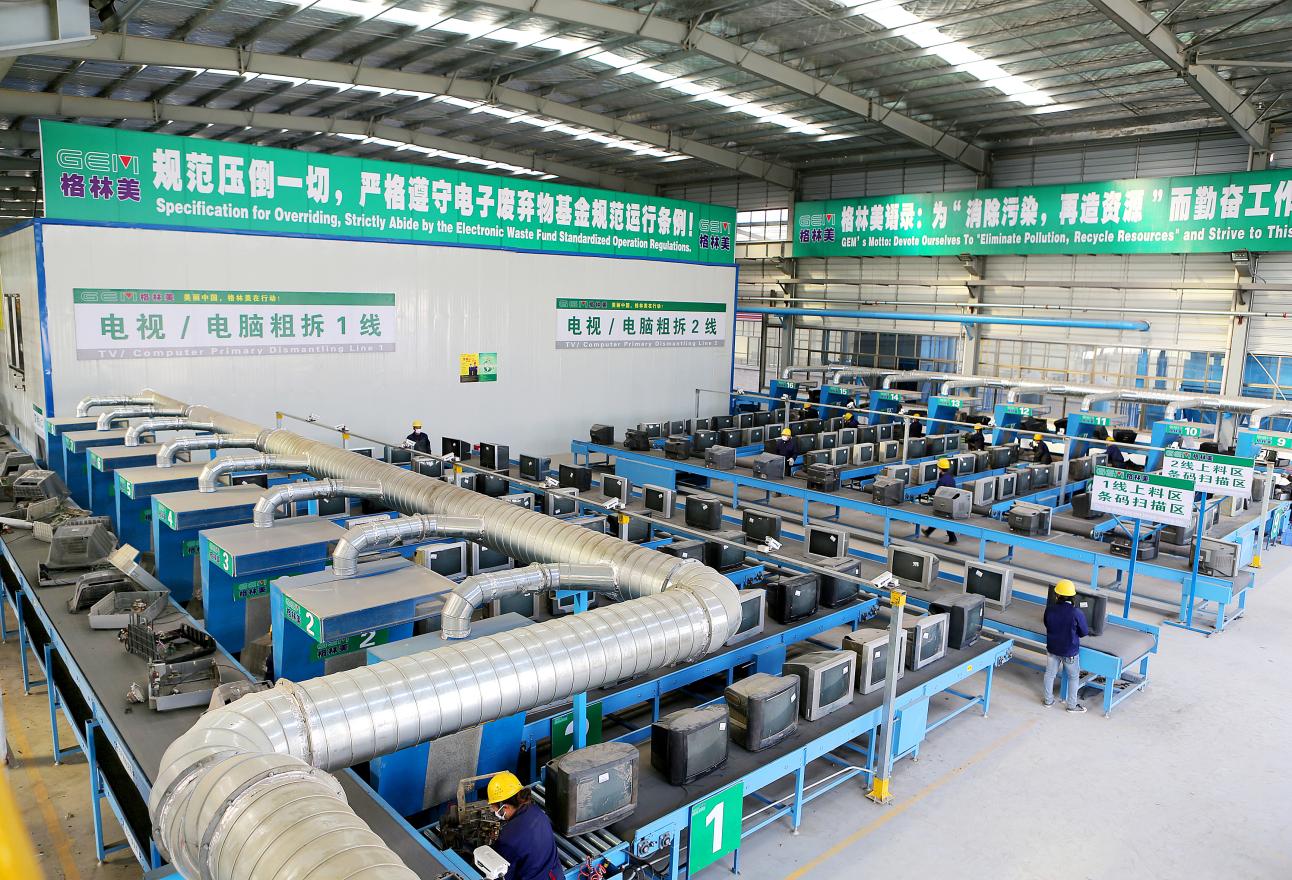
Figure 3 Green disposal line for electronic waste at GEM
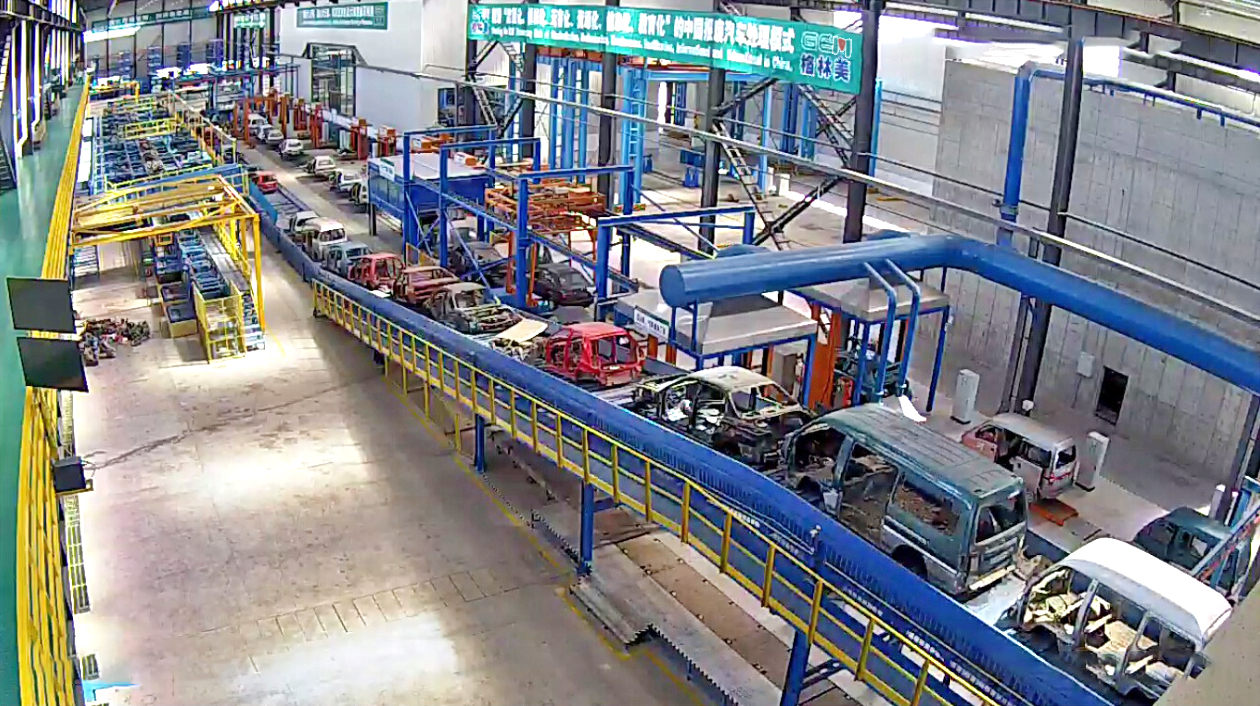
Figure 4 GEM’s green disassembly line for scrapped cars
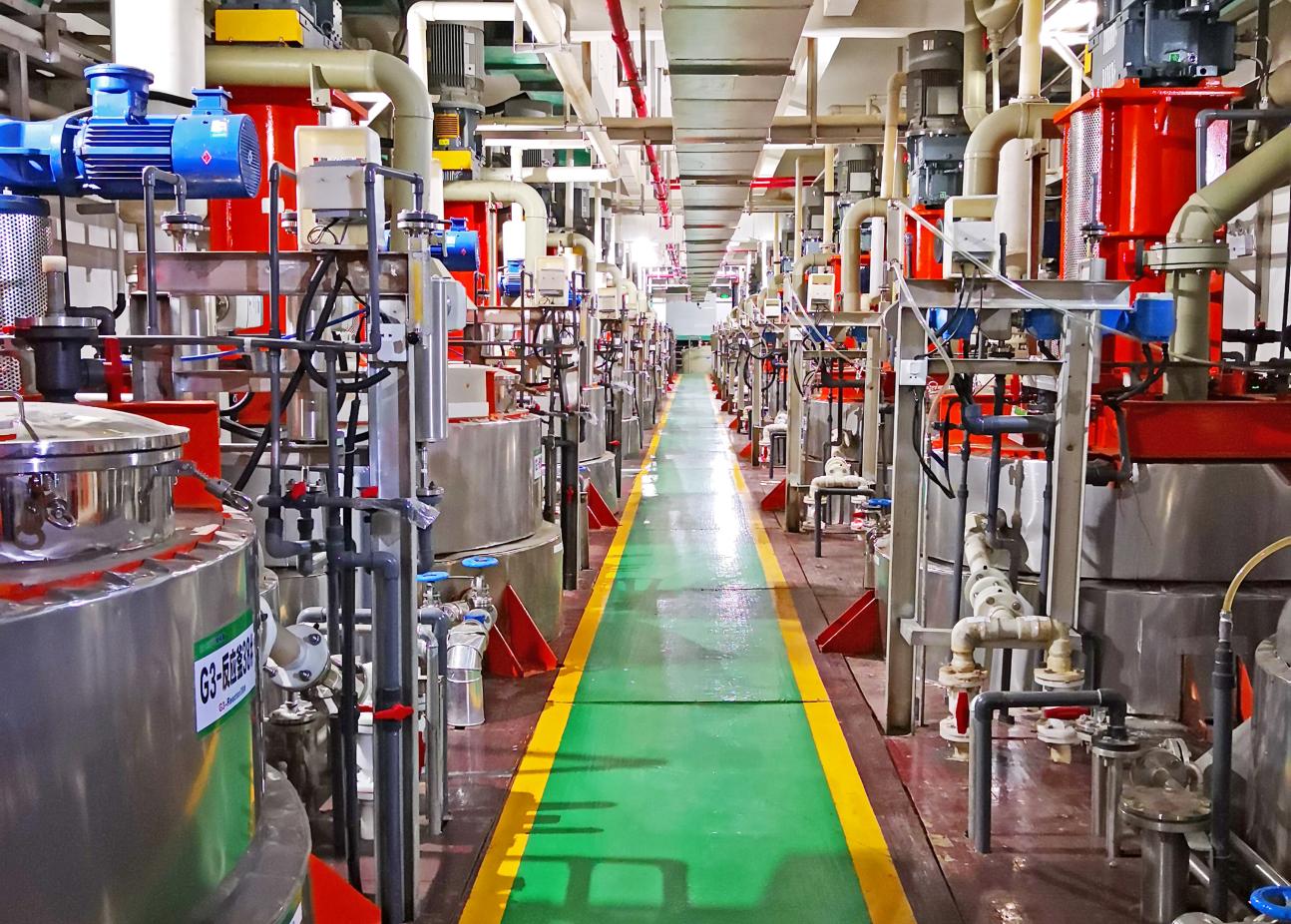
Figure 5 Production line for GEM power battery ternary precursor
GEM’s circular economy industrial practices have also been widely recognized around the world. It has built a green supply chain relationship with world-renowned enterprises such as Glencore, Trafigura, BASF Shanshan, Umicore, Sandvik, Samsung SDI, CATL, and Foxconn. Moreover, GEM has been awarded distinctions such as the national circular economy educational demonstration base, the national "urban mine" demonstration base, the national technological innovation demonstration enterprise, the national green factory and other green honorary titles. Therefore, it has become an outstanding representative for promoting China's circular society and low-carbon development. GEM has won the "Global Circular Economy Multinational Corporation Award" in Davos in 2018 and the "Paulson Sustainable Development Award" in 2020. It has been listed in the world-renowned magazine “Nature” as a successful case of global waste recycling, and has been listed as a pollution reduction demonstration enterprise by the United Nations. Thus GEM has become an important geographical indication of China's circular economy going global.
In 2021, with the gradual release of the company's production capacity, and significant increase in operating efficiency, GEM’s operating revenue reached 19.301 billion RMB, up 54.83% YOY; net profit was 923 million RMB, up 123.82% YOY. Since being listed in 2010, GEM has continued to achieve rapid growth and soaring performance. Its operating income grew by nearly 34 times, net profit by nearly 11 times, net assets by more than 13 times, successfully shaping a world low-carbon recycling industry legend.
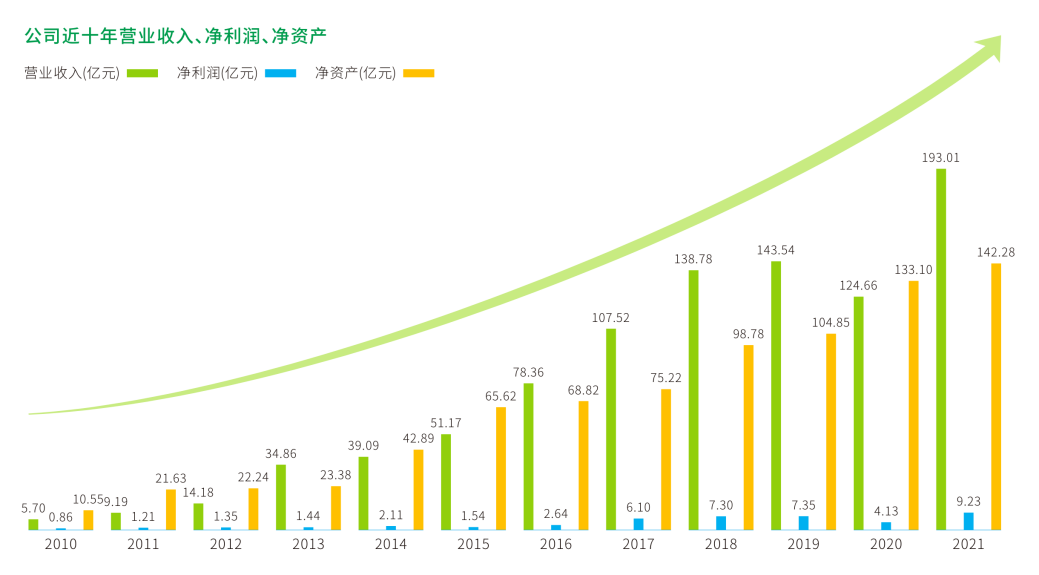
Figure 6 Operating income, net profit and net assets over the past decade
Taking the high-speed rail of green development, the future performance of high growth can be expected
With the rapid development of global new energy resources, new energy vehicles are quickly replacing internal combustion vehicles. By 2026, the global sales of new energy vehicles will exceed more than 20 million units. Therefore, power batteries and battery materials will feed a huge emerging market.
With the upgrading of Chinese consumption and the development of industrial digitalization, China will usher in the peak of scrapped electronic products. By 2026, the value of scrapped cars, electronic products, power batteries and plastic products will reach more than RMB 2 trillion Yuan.
Over the next five years, the dual-track green strategy of "mining urban mines + developing new energy materials" will seize the once-in-a-century rapid development of new energy and the peak of China's waste scrap, stride on the high-growth development channel, and create good investment value for global investors. GEM announced 2022 sales revenues of 26 billion Yuan / profit 1.5 billion Yuan, 2023 sales 32.8 billion Yuan/ profit 2.1 billion Yuan, 2024 sales 41.8 billion Yuan/ profit 3.2 billion Yuan. For 2026, GEM sales revenues will strive to exceed 80 billion Yuan, with reduced carbon dioxide emissions of 1 million tons. This will result in an upgrade from "turning waste into treasure" to "turning waste into a carbon sink," breaking through the green value upgrading of the company from selling renewable resources to selling "carbon sinks", thus creating the world’s leading enterprise group in green development!
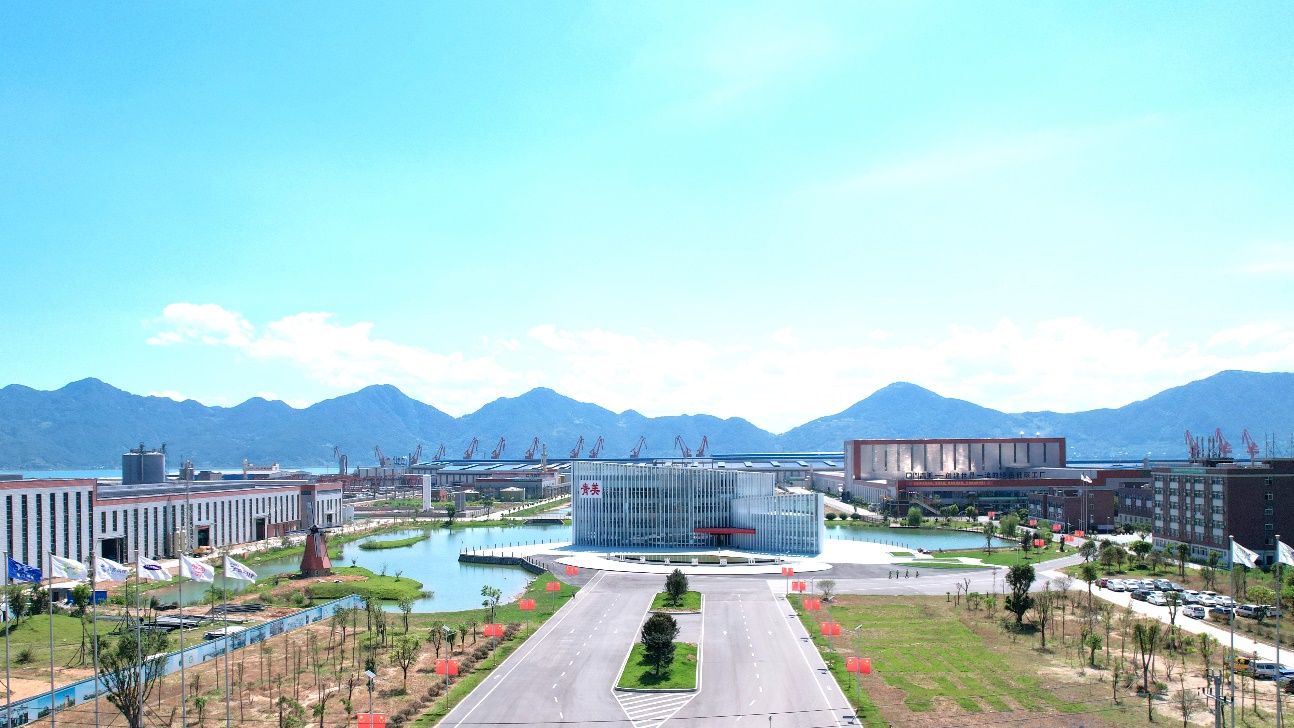
Figure 7 GEM’s future “zero carbon” industrial park
Disclaimer: This article is reproduced from other media. The purpose of reprinting is to convey more information. It does not mean that this website agrees with its views and is responsible for its authenticity, and does not bear any legal responsibility. All resources on this site are collected on the Internet. The purpose of sharing is for everyone's learning and reference only. If there is copyright or intellectual property infringement, please leave us a message.
©Copyright 2009-2020 Startup Weekly Contact Us SiteMap